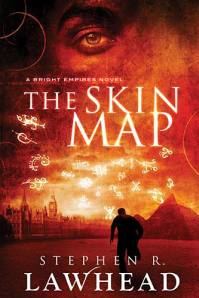
The Voice™ New Testament is a new dynamic translation that attempts a '... retelling [of] the story of the Bible in a form as fluid as modern literary works, yet remaining painstakingly true to the original Greek, Hebrew, and Aramaic texts.'
Most of the text is in a standard font, however the translation follows the practice of italicising words that are not connected to the dynamic translation of the original text. One unique feature of this translation is the inclusion of material in the flow of the text, delineated by horizontal lines, that expand on the themes of the passage being read. Another unique feature is the use of a "screenplay" format where dialogue occurs. This has two effects: it makes dialogue clearer to follow and also "cleans up" the text of '... endless repetition of conjunctions, articles, and certain verbs.'
Unlike most translations which rely primarily on language scholars, The Voice™ New Testament has also included a group of modern writers, musicians and poets to ensure beauty as well as accuracy in the translation. The group of translators and "artists" have attempted to maintain the unique "voice" of individual book authors rather than a flat style throughout.
The front matter of The Voice™ New Testament has a very helpful discussion of the translation process and some of its challenges. There is also a discussion of the Greek word Christos, usually transliterated as Christ, which has been rendered throughout the New Testament as the Anointed or the Anointed One in the belief that these terms convey the meaning of the title of Christ rather than it being mistakenly understood by readers to be part of the name of Jesus. An explanatory phrase, the Liberating King, has also been added at times to '... remind us of the primary mission and of the reason God elects and empowers Jesus in the first place.'
The front matter also includes four different reading plans of the New Testament for Advent, Lent and Easter, reading the New Testament in 24 weeks, and a series of readings entitled 40 Days with God. There is also an introduction to the New Testament using covenant theology as a framework for understanding.
Let me say up front that I am not a language scholar and my review is based on reading the front matter and the letters of Paul to the Romans and Galatians - my two favourite books of the New Testament. I have mixed feelings about this translation. There is a certain freshness in most new translations due to the variations of phrasing from what one is used to. The screenplay dialogue is also interesting and definitely makes the to-and-fro of speakers easy to follow – particularly in the gospels and the book of Acts. So there is certainly value in this new version of the New Testament. The thematic expansions, while they are delineated by lines before and after, do tend to break up the flow of the text and I think they would have been better included as notes at the bottom of the page or end of the chapter. On the other hand, including them in the flow of the text was useful as I read the text on my Kindle and it meant not having to jump back and forth using links to read this material.
My greatest concern about this translation is the inserted italicised material. While the italicisation does indicate that this material is not derived from the original text, I think much of it is unnecessary and is sometimes biased toward a particular interpretation of the text. For example, Romans 16:3, in the New American Standard Bible ( very literal translation), reads:
Greet Priscilla and Aquila, my fellow workers in Christ Jesus...
The Voice™ New Testament reads:
Give my best to Priscilla and Aquila; they are not only my colleagues in my profession of tent making, but more importantly they are my fellow servants of Jesus the Anointed. (italics in original)
Notice, in the italicised section, a completely unwarranted statement that Priscilla and Aquila are colleagues in tent making. In other words, the suggestion is that they are not equal workers in the pastoral work that Paul does. Compare this with some other translations:
Greet Prisca and Aquila, who work with me in Christ Jesus ... (New Revised Standard Version)
Greet Prisca and Aquila, my fellow workers in Christ Jesus ... (English Standard Version)
Give my greetings to Prisca and Aquila, my coworkers in Christ Jesus ... (Holman Christian Standard Bible)
One has to wonder whether the translators/editors of The Voice™ New Testament are trying to avoid any suggestion that women can be equal partners in ministerial/pastoral work by inserting this extra material. While this is only one example, there are frequent interpolations of the text which, in my view, should be left out as they are not derived from the original material.
Overall, I think The Voice™ New Testament is an interesting new addition to bible translations. But, as with all translations, there are advantages and disadvantages. None are perfect. The more translations a Bible student uses the better as comparison helps to maintain some objectivity about what is certain and what is not in any one translation. So, it is a worthy addition to one's library and provides yet another perspective and enrichment of the biblical material and its meaning.
Buy the The Voice New Testament: Revised & Updated'.
Disclosure of Material Connection: I received this book free from the publisher through the
BookSneeze®.com ; book review bloggers program. I was not required to write a positive review. The opinions I have expressed are my own. I am disclosing this in accordance with the Federal Trade Commission’s 16 CFR, Part 255 : “Guides Concerning the Use of Endorsements and Testimonials in Advertising.”
 Deconverted: a Journey from Religion to Reason by Seth Andrews
Deconverted: a Journey from Religion to Reason by Seth Andrews






















